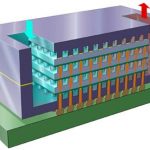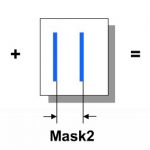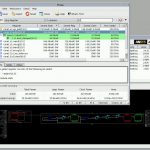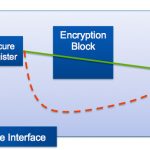At the recent NCCAVS Thin Film Users Group meeting in November, HP was on the program in the person of Joshua Yang who gave a materials centric look at the status of the HP ReRAM (Memristor) program. A colleague passed on the informative set of slides presented at the meeting. Being a former process integration team leader, I was immediately… Read More
Tag: eda
A Brief History of Synopsys
One of the largest software companies in the world, Synopsys is a market and technology leader in the development and sale of electronic design automation (EDA) tools and semiconductor intellectual property (IP). Synopsys is also a strong supporter of local education through the Synopsys Outreach Foundation. Each year in multiple… Read More
Happy Holidays
At times of this year, companies usually get their salespeople to submit the names and addresses of all their customers. They then get an expensive card printed and mail it out. What the recipient does is anyone’s guess, from throwing it straight in the bin to using it to decorate the office.
Atrenta decided to do something … Read More
3D Architectures for Semiconductor Integration and Packaging
There is obviously a lot going on in 3D IC these days. And I don’t mean at the micro level of FinFETs which is also a way of going vertical. I mean through-silicon-via (TSV) based approaches for either stacking die or putting them on an interposer. Increasingly the question is no longer if this technology will be viable (there… Read More
Double Patterning Verification
You can’t have failed to notice that 20nm is coming. There are a huge number of things that are different about 20nm from 28nm, but far and away the biggest is the need for double patterning. You probably know what this is by now, but just in case, here is a quick summary.
Lithography is done using 193nm light. Today we use immersion… Read More
Apache Power Artist Capabilities I
I sat down last week with Paul Traynar who was over from UK. He is Apache’s PowerArtist guru. The first thing we talked about was PowerArtist’s sequential power reduction capabilities.
Forward propagation of enables means that when a register is clock gated and feeds a downstream register then that register can be… Read More
A Brief History of the Fabless Semiconductor Ecosystem
Clearly the fabless semiconductor ecosystem is driving the semiconductor industry and is responsible for both the majority of the innovation and the sharp decline in consumer electronics costs we have experienced. By definition, a fabless semiconductor company does not have to spend the time and money on manufacturing related… Read More
Microprocessor Test and Verification 2012
Next week December 10-12th is the Microprocessor Test and Verification (MTV 2012) which is in Austin Texas (as DAC will be next year, of course). After lunch on Monday there is a panel session on the effectiveness of virtual prototyping entitled When simulation suffices, who needs FPGA or emulation? Bill Neifert, the CTO of Carbon… Read More
Formal Analysis of Security Data Paths
One challenge with security in systems is to ensure that there are not backdoors, either accidentally or maliciously inserted. Intel, ARM and others have various forms of trusted execution technology. Under the hood these are implemented by dividing the design into two parts, normal and secure, and implementing them with physical… Read More
Double Patterning Exposed!
Wanna become the double patterning guru at your company? David Abercrombie, DFM Program Manager for Calibre, has written a series of articles detailing the multifaceted impacts of double patterning on advanced node design and verification. For designers struggling to understand the complexity and nuances of double patterning,… Read More










